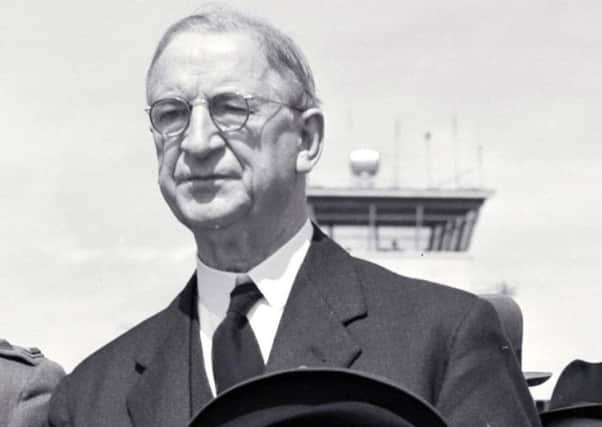Irish neutrality stopped civil war


I am sure that it is not intended to be offensive to the people of Northern Ireland.
Not only was neutrality logical for the 26 counties in 1939, it was a necessity. The alternative position (ruling out an alliance with Nazi Germany) could only have led to a renewal of the catastrophic Civil War of 1921-1923 (something from which the 6 counties on the whole were mercifully spared).
Advertisement
Hide AdAdvertisement
Hide AdAs a result of the partition of the island in 1921 there was understandably much bitterness towards and even hatred of the British in 1939, and I would say that a majority in the south in consequence sympathised with Germany (perhaps 60% or even more).


At the same time a minority was equally supportive not only of the British cause but also of the human cause implicit in the treatment of the Jews in Nazi Germany.
Neutrality made it possible for those in the 26 counties loyal to the Irish government in the aftermath of the Civil War (including Trinity College Dublin) to remain loyal but also to opt to fight with the allies (the just cause in the war) and to journey to Belfast in order to do so.
One hundred and eleven Trinity graduates (including two women) sacrificed their lives for the freedom and democracy in Europe for which we still struggle today. They are much to be admired and I admire them unreservedly, as I am sure does Leo Varadkar, one of our more recent graduates.
Advertisement
Hide AdAdvertisement
Hide AdAt the same time as covertly aiding the allied cause, Eamon de Valera kept the 26 counties free from civil war in those perilous times. I am sure we remain grateful here in Dublin to him for that.


These were not comfortable choices for Eamon de Valera to make and I do not doubt that the defence of neutrality in 1939-1945 was imperfect in many ways. But the need to avoid civil war is an absolute imperative for any statesman.
I set out these matters at greater length in Gerald Morgan and Gavin Hughes (eds), Southern Ireland and the Liberation of France: New Perspectives (Oxford, Bern, Berlin, etc.: Peter Lang, 2011).
Dr Gerald Morgan, Dublin